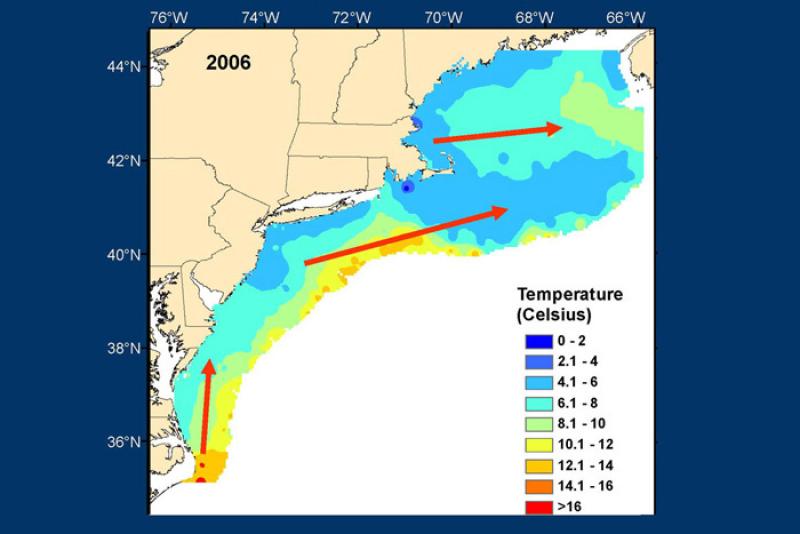However fast you think climate change is happening on land, it’s happening even faster in the ocean. Marine species are particularly mobile, and they’re quickly moving toward the poles in order to stay cool as things heat up.
This poses a challenge to fisheries management because it has the potential to affect our estimates of fish populations. That’s because if the distribution of fish changes—if the fish are no longer where they used to be—then we might over- or undercount them in our surveys.
Most types of distribution shift would not affect population estimates because they’d be picked up by the survey. But for those cases where it could be a problem, our scientists are working on a solution.
John Manderson is a NOAA Fisheries biologist, and he’s working on the stock assessment for butterfish. By studying the habitat ecology of this species, Manderson hopes to map shifts in butterfish habitat caused by changing ocean temperatures. Those maps can then be used to fine tune estimates of butterfish abundance.
To do this, Manderson is working with physical oceanographers that model fine-scale changes in ocean temperatures. He’s also working with stock assessment scientists to find a way to incorporate his mathematical adjustment into their fish population models.
Perhaps most importantly, Manderson is working with fishermen. "Because no one understands the habitat ecology of an animal better than it's predator," he said.
Manderson and the scientists and fishermen he’s collaborating with aren’t the only ones working on this problem. All along our coasts, NOAA Fisheries scientists and their partners are developing ways to incorporate environmental data into stock assessments. The world is changing quickly, and this story is just one example among many of how our science is changing with it.
The ocean temperature models used in this research are created by MARACOOS. Other contributors include NOAA’s Northeast Cooperative Research Program, the NOAA Fisheries Habitat Assessment Improvement Plan, and the Mid-Atlantic Fishery Management Council.



